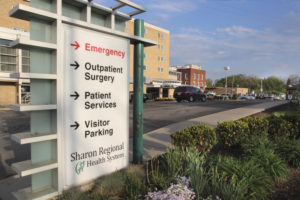
A wrongful death action is a type of civil tort lawsuit filed by the loved ones of a person who died due to another party’s wrongdoing. A plaintiff might pursue a wrongful death action if a doctor or healthcare provider failed to uphold their duty of care to a patient, and the patient died as a result.
At Medical Malpractice Help, we can explain more about filing a wrongful death action and medical malpractice law. If your loved one died as a result of negligent medical care, you might qualify for damages. Call 888-526-8947 today for a free consultation about your case.
What Is a Wrongful Death Action?
The main feature of a wrongful death action is that it is brought by the loved ones of a person who died as the result of someone else’s wrongdoing. In medical malpractice, the liable party is usually a doctor or another healthcare provider. However, wrongful death actions can apply to any fatal incident, such as a car crash.
Depending on the state, the damages a plaintiff can recover through a wrongful death action might include compensation for:
- The loss of the deceased’s income.
- The loss of the deceased’s companionship or parental guidance.
- The cost of medical treatment for the deceased before their death.
- Funeral costs.
- Punitive damages.
What Is a Medical Malpractice Action?
A medical malpractice action may result anytime a healthcare provider breaches the standard of care and causes an injury. The injury can be minor or major, up to and including death. As long as the provider’s substandard care caused injury, and the injury resulted in the patient incurring economic or non-economic losses, the provider is liable for medical malpractice.
Which Type of Action Is Appropriate for My Case?
If your late family member was the victim of medical negligence, you might qualify to file either a wrongful death or a medical malpractice claim. The best option for you will depend on several factors.
Damage Caps
States sometimes limit the damage awards available in certain cases. These damage caps vary from state to state. For instance, some limit all damages, while others limit only non-economic damages, such as pain and suffering. How your state caps medical malpractice and wrongful death damages can influence which type of lawsuit is better to pursue.
Statutes of Limitations
The statute of limitations also varies by state. If the statute of limitations for a wrongful death action is almost expired, for example, your best options would be to pursue a medical malpractice action instead. We can go over your state laws to determine if you are within the statute of limitations for medical malpractice or wrongful death.
How Can I Discuss My Options During a Free Attorney Case Evaluation?
At Medical Malpractice Help, we want to fight for the best outcome for your wrongful death or medical malpractice lawsuit. We offer free case evaluations to clients across the United States. We can talk about your situation and answer all of your questions. To schedule an appointment with a medical malpractice lawyer, call our office today at 888-526-8947.
Wrongful Death Action - Frequently Asked Questions

You can receive compensation for a birth injury that affects the mother. When a doctor’s negligence, wrongful action, or lack of action during childbirth results in injuries to the child and/or mother, it is medical malpractice. As the injured party, and as the parent of the other injured party, you have the right to pursue
Read More
If your doctor misdiagnosed AIDS or HIV — either by diagnosing you as negative when you had the disease or as positive when you did not — you or your spouse may have grounds for a medical malpractice lawsuit and a lucrative award. Plaintiffs have won substantial malpractice awards from doctors who misdiagnosed AIDS or
Read MoreWrongful Death Action - News Articles

Pennsylvania Surgeon Found Negligent for the Death of Thomas A. Natale; A Mercer County Jury Awards Family $5.1 Million Nearly a decade ago, Thomas A. Natale Jr. was standing on the back of a truck at work when he lost his balance and began to fall. Natale tried to brace himself before he hit the
Read More
Last week around 30 outraged Kolkata citizens violently attacked a hospital in India after the death of Kuheli Chakraborty, a four-month-old infant. The enraged mob reportedly cracked the glass doors at the entrance of the facility prompting police intervention to break up the protesters. Kuheli’s parents allege that if not for the negligence of doctors
Read More